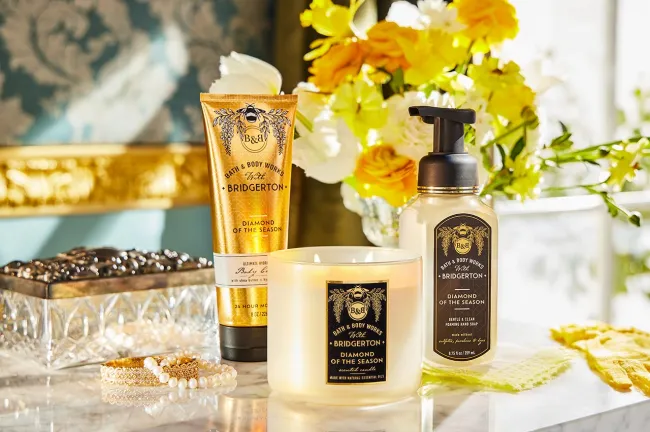As investors, analysts, cosmetic industry insiders, direct sellers and consumers digest the news that private equity firm Cerberus Capital Management is taking over Avon Products Inc.’s North American operations, separating it from the much larger international business and investing to accelerate growth abroad, doubts remain about whether Cerberus’ involvement can jolt Avon out of a years-long turnaround phase and into an actual turnaround. Many insist Cerberus and Avon must make dramatic and occasionally risky improvements in order to catapult Avon into being a contemporary cosmetics powerhouse and not merely a relic.
“When change is extraordinary, it means that companies have to move with extraordinary speed and, heretofore, even with all the changes Avon has made, it hasn’t been fast enough. They need to be a different company,” said Richard Levick, Chairman and CEO of Levick, a communications firm representing countries and companies coping with crises. “Avon has to make significant changes, and it has to look forward and not backward.”
Nearly four years ago, Richard wrote in a Forbes article that the task for Avon “is not to increase brand loyalty or brand awareness. It is to increase the scope of that brand from how Avon sells to what Avon sells.” Today, he argued his assertion is as pertinent as ever. While not abandoning its sales force, Richard reiterated Avon must pivot from its focus on direct sellers to the interests of end users. “Avon needs to decide who it is, a direct selling organization or a cosmetic company,” said Levick. “I think it is a historic legacy in search of a brand. It need to be looking at branding specific products, and the website and social media in greater support of its sellers.”
Despite its financial woes (revenues at the money-bleeding North American division plunged 17 percent to $1.2 billion last fiscal year from 2013), Avon isn’t necessarily working from weakness. The direct-sales sector in the U.S. isn’t in demise. The Direct Selling Association reported that retail sales in the American direct-selling industry climbed 5.5 percent in 2014 to $34.5 billion, and the number of people participating in direct selling jumped 8.3 percent to 18.2 million. In personal care, the third largest product category in the direct-selling sector trailing home and wellness, several brands have been making headway, including Beautycounter, Rodan + Fields, Younique and Nerium.
The issue for Avon in direct sales is that its promise to potential representatives may be unappealing in the face of competitors. One industry source said, “The direct-selling business is about the reward relative to energy spent. The Avon rep has to work way too hard to earn not even a good living, but any living.” For its part, Cerberus has indicated it sees no reason to discard the direct-sales strategy completely. In the firm’s announcement of its deal with Avon, Cerberus Senior Managing Director and co-Head of Global Private Equity, Steven F. Mayer said, “We are strong believers in the direct selling model, the principle of empowering Representatives, and the growth that direct selling can generate when Representatives are appropriately supported and incentivized to build their businesses.”
It’s not as if Avon isn’t well known both among direct sellers and beauty consumers. Innovation and marketing consultancy, Tenet Partners, finds that two key metrics of familiarity and favorability have been on the rise for Avon since 2005. In fact, Avon’s favorability outperformed the likes of L’Oréal, Revlon and Estee Lauder this year, leading the consultancy to conclude “U.S. consumers still hold the brand in high regard.”
Hampton Bridwell, CEO and Managing Partner at Tenet Partners, said, “There is untapped potential for the company to exert its leadership position in the marketplace. Avon is an American institution that has empowered generations of women. However, as the company looks to the future, a renewed focus on gaining relevance among younger, and now digitally-driven consumers, will be critical to unlocking the full value of one of its most important assets, the Avon brand.”
The test for Avon is to determine what modifications must be made to gain relevance. Richard suggested Avon should concentrate on three areas of industry-wide growth: naturals, digital and men’s. He pointed out that a search for the word “organic” on Avon’s website nets no results and, although the company launched a revamped website in 2014, he stated the digital universe isn’t yet the priority it should be for Avon, which was late to embrace social media and major e-commerce players. “Millennials don’t buy product because they talk to a [direct] sales person. They are influenced by social media,” said Richard.
Spreading Avon into retail is a possibility that’s floated whenever company transformation is discussed. One industry source was uncertain whether a run at retail would solve Avon’s problems. “Some people say it should be a Walmart brand. You would take a current base of $1 billion and, at Walmart, it would be no more than $100 million to $200 million…Some people could say you could make more money on $100 million than you are losing on $1 billion,” he said, continuing that a stronger emphasis on social media and e-commerce made greater sense. He elaborated, “A lot of customers don’t want someone coming to their house anymore. How do you try to get someone new? Now, maybe the best way to get to you is through social and e-commerce.”
Industry insiders and analysts who contend Avon’s North American operations can pull through, stress that Cerberus is skilled at rehabilitating ailing companies and that taking the business private could provide flexibility essential to experiment with different options for the business. Capital analyst Lauren Lieberman emphasized privacy gives management the ability to “sort out its issues” without the scrutiny of the public markets and affords it with “the best shot” at “reviving its North America business.” She remarked that new management at Avon North America “will take a far more creative and risk-embracing path.”
“Many times in the past, we have seen Avon begin to implement changes in its business – be it in the sales force structure (sales leadership), earnings model (one simple sales model), distribution model (JCPenney partnership) or product line (fewer holiday decor items; retiring beauty products with limited reach) – only to entirely unwind the decision after the impact on representative activity was far more negative than expected. In most cases, the better choice may have been to stay the course, adapting the business model, brand or improving working capital, but the pressure to stabilize the business and avoid negative operating leverage proved too great,” wrote Lauren, implying that consequential changes may be easier to stick with in a private setting.
The managers that will carry out consequential changes at Avon North America haven’t been named yet, but Cerberus is adept at putting in people in place to orchestrate corporate about-faces. “Cerberus is in the business of turning around companies, and I think, if anyone can do it, they can,” said Richard. “It is going to require wholesale changes and not just tinkering. Avon needs a full makeover.”



